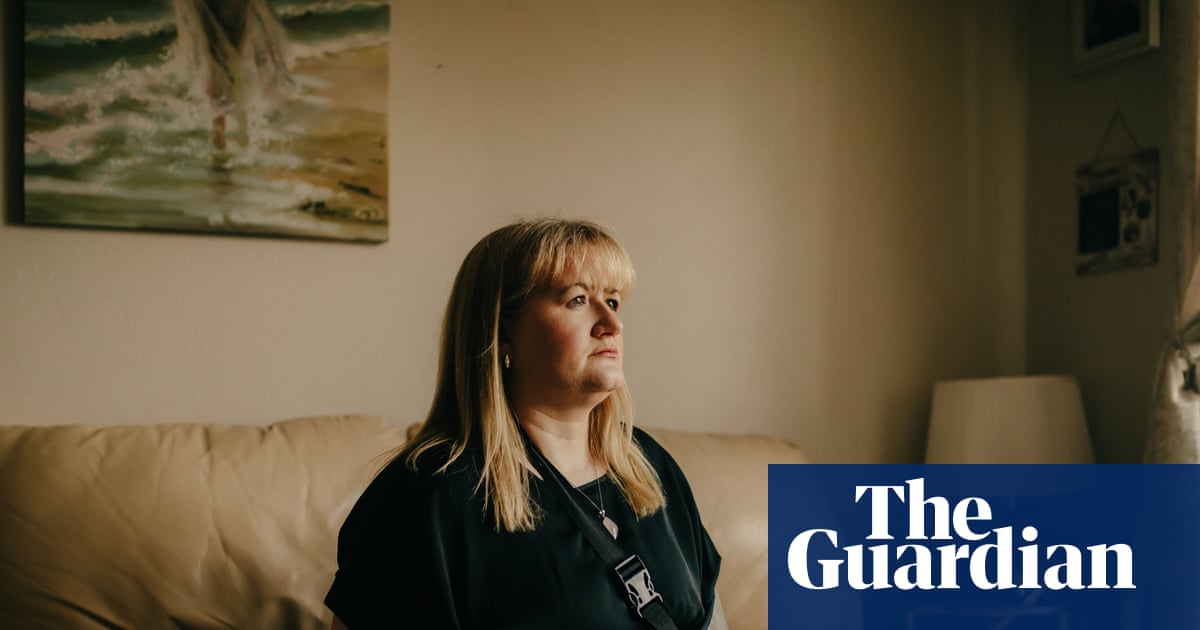
I’m of an age – 48 – that means I grew up without a computer. I didn’t use the internet until my early 20s, but once I did I was hooked, using it to keep in touch with friends. Over the years, the internet changed, but I always used the latest social media site to share my life with friends. Then, in 2021, I became ill – doctors noticed some changes in my genes and I ended up having a preventive double mastectomy and my ovaries removed. The stress caused my long-term relationship to break down. However, I tried to stay positive and shared my journey online to connect with others going through a similar thing.
By November 2022, I’d built up quite a large following, and a message dropped into my inbox on Facebook from a man called Andrew. He said he was an army medic, based in Afghanistan, and he’d been moved by my story – his wife had recently passed away. We chatted for weeks, and I really opened up and started to feel close to him. One day, he messaged saying his internet was about to be cut off, and asked me to send him some gift cards with money on them.
I immediately grew suspicious, and cut off contact with him. I posted about what had happened, and was shocked to realise this was a common romance scam known as trauma bonding, where a scammer locks on to a traumatic experience and uses it to bond with you.
People started messaging me in droves, sharing their experiences. I was shocked and upset for them. I was working full-time as an NHS healthcare worker, but when I wasn’t at work I’d spend hours helping to track down scammers – and I’d post about the stories to warn other people on my TikTok account, @staysafewithmjules.
One lady had fallen for a soldier and sent him thousands of pounds, but she had a feeling something wasn’t right. I discovered the scammer had stolen the identity of a real US soldier who had died in a car crash. She was absolutely devastated. There were dozens more like her.
As my followers grew to more than 10,000, I started to become a target for scammers myself. I began to enjoy leading them along to the point they’d ask for money and send me their bank details – then I could report their bank or crypto account to the police.
Because I deal with scams nearly every day, I didn’t think I’d become a victim myself – but somehow I did.
Last year, I received a letter from HMRC about my yearly tax rebate. It said they’d added extra security to my account and I needed to send a copy of my passport and driving licence to confirm my identity. It sounds ridiculous now, but because the letter looked identical to ones I’d always received, I sent pictures of my documents to the email provided.
A few days later, I started to get worried and called HMRC. To my horror, they told me I’d already claimed the £2,000 they owed me. They investigated and asked me about the bakery I’d recently opened. I can’t bake a cake to save my life. It slowly unravelled that someone had opened a fake business under my name, likely used for money laundering.
I spoke to the police, and they were helpful in getting the fake business shut down, but further investigations showed my details were for sale on the dark web. I’d had dozens of loan applications made in my name, most of which had been rejected – but the endless attempts left my credit score in the gutter. Then I received a letter from a solicitor telling me I was being taken to court for non-payment of a £16,000 loan that had been taken out in my name. I felt sick to my stomach.
after newsletter promotion
Fortunately, the loan was written off as I could prove I’d been scammed. The police advised me to change everything I could; email addresses, phone numbers, even my name and address.
I worried about whether to share that I’d been scammed. It’s common for people to victim-blame and say they’d never fall for it, but it can happen to anyone. I’m glad I did share what happened to me because it might help someone else avoid going through it, too. And despite knowing it will continue to make me a target, I’ll keep running my social media pages hunting down scammers – my experience proves how important it is.
As told to Heather Main
Do you have an experience to share? Email experience@theguardian.com








